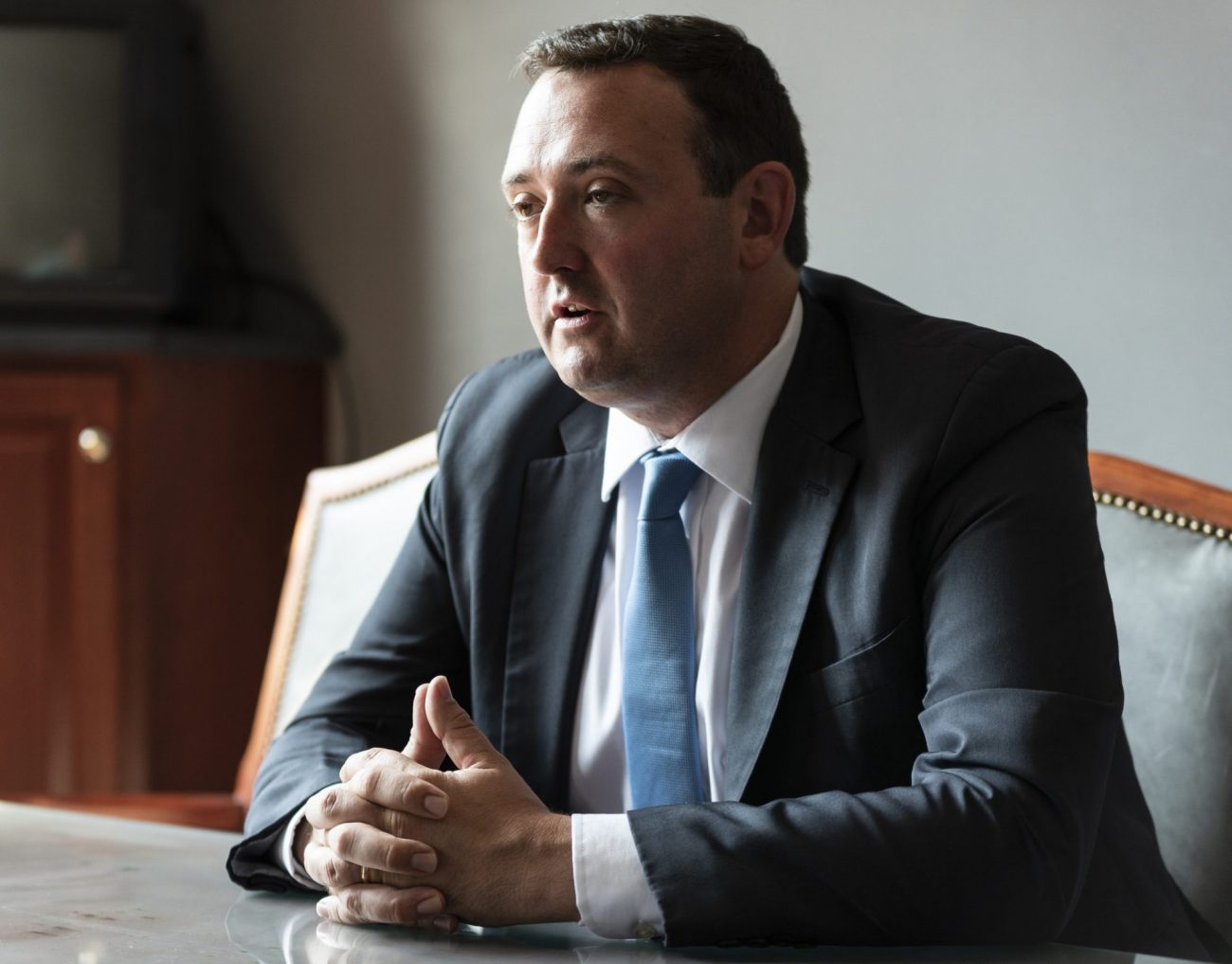Drew Russo’s knuckles are sore.
The Democratic candidate for the Essex County 11th District seat in the state legislature claims to have knocked on 10,000 doors during the campaign. It’s the only way he knows how to connect with voters in this close-knit district before the Sept. 4 primary.
“We have 400 years of shared history, and that’s something I think a lot about here,” Russo said.
The door-to-door hustle in Lynn and Nahant has Russo, 37, reconnecting with his roots. He studied at St. Mary’s High School in Lynn before graduating from St. Michael’s College in Vermont. After graduating, he worked with the homeless as a Jesuit volunteer in Detroit. He then returned to Massachusetts and worked for the Jesuits before taking a job as assistant director of advancement at St. Mary’s.
It was around that time that he met his future wife of five years, Patricia Ridge, at a church-sponsored potluck dinner.
“We were friends for a year and one night I asked her what she thought about the two of us,” he said. “My wife’s response was, ‘It makes a lot of sense.'”
He also spent years working behind the political scenes for former U.S. Representative John Tierney and then-state Senator and future Lynn Mayor Thomas M. McGee. He currently moonlights as vice chairman of the Lynn Democratic Committee when not working his day job as executive director of the Lynn Museum.
TRANSPORTATION
For Russo, transportation is his first priority for the district.
“We pay more than our fair share in taxes and tolls, and don’t get enough back in terms of transportation infrastructure,” he said.
First on Russo’s list is restoring ferry service to Lynn. The service, which has had several starts and stops in the past few years, was grounded this year by Gov. Charlie Baker, who in an interview told the Item that there was not enough demand to justify the expense of operating the service.
“I think that the administration’s decision not to fund the ferry this year was a short-sighted decision,” Russo said.
Russo also wants to explore other transit options, such as regional rail on the commuter rail line, the potential expansion of the Blue Line, or a Silver Line-style connection between Central Square Lynn and Wonderland.
“If we do that, it makes the city more attractive to job creators that might find themselves beginning to get priced out of Boston, Cambridge, and Somerville,” Russo said.
HOUSING
Those transportation fixes would help unlock Lynn’s potential for development. But with new development comes concerns about housing prices. Building more housing stock to meet demand is key, he said.
“We need a certain amount of market-rate housing to catalyze housing growth,” Russo said.
An example of that is the proposed 189-unit apartment building proposed for Munroe Street in Lynn. Russo said he supported the city’s decision to offer the developer tax breaks to get the project off the ground.
“I think it’s going to end up in fees and building permits and eventual tax revenue helping to bring in millions to the city at a time when we really need it,” Russo said.
To combat gentrification and help residents struggling with rising housing costs, Russo supports increased funding for the MassHousing voucher program, building affordable housing stock “that is done with dignity,” and empower the city to negotiate community benefit agreements with developers. He also supports allowing residents to rent their in-law apartments to non-family members and other reforms to zoning.
“There are members of my family, who, if they lost their housing tomorrow, couldn’t afford a market-rate unit in the city of Lynn,” he said.
NORTHEASTERN
Beyond Lynn, Russo opposes Northeastern’s plans to expand its marine research center at Nahant’s East Point.
“I think that East Point is a treasure, and I think it is a wonderful haven of open space,” he said. “The project has the potential to create an infrastructure burden on the community that I don’t think has been totally addressed.”
Northeastern should cast its gaze south and consider building its new facility in Lynn, according to Russo.
“(Lynn) is a gateway city that’s looking for the type of investment in its waterfront that could catalyze investment into public transportation,” he said.
IMMIGRATION
That investment into the community also means investing in the people who are here. More than 40 percent of Lynn’s population identifies as Latino, a fact that’s not reflected in the makeup of the city’s governance.
“I do think that the city needs to be more representative of its demographics and the people who live here,” he said. “And I think it’s all about community engagement.”
Part of that is passing the Safe Communities legislation, a patchwork of immigration-related regulations that failed to gain support in the legislature before the end of this year’s session.
Beyond Beacon Hill, Russo said supporting the Latino community has to start at home. Reaching out to immigration skeptics and opponents is key to making that happen, he said.
“Some of those very same people were appalled by migrant children being taken from their parents at the border,” Russo said. “We have to appeal to our common humanity, and we have to do more.”
For now, Russo’s focus is on knocking on more doors to make his case.

